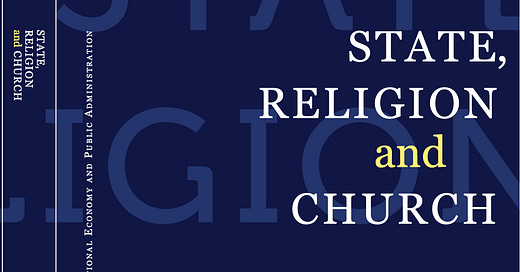More on Plagiarism and Perverse Incentives
Global Capitalism, Authoritarianism, Unaccountable Big Tech, and Lost Generations
As someone who has both worked in higher education and spent a lot of time working as an English instructor and then a college professor in Russia, plagiarism is something I’ve had far too many encounters with. And last week here at The Bugbear Dispatch, I wrote about how living and working in Russia shocked my sensibilities precisely because of how pervasive plagiarism and academic cheating are.
Sure, I experienced culture shock in a number of other areas as well, but I had a much easier time adapting to many differences between Russia and America than I did adapting to that free and easy attitude toward the stealing of someone else’s intellectual labor to pass off as your own. I could never accept that (and still can’t), though I had to live with it, sometimes feeling morally compromised by the ways administrators forced me to handle conflicts (and in one case just went over my head and passed a student who refused to redo an assignment).
But there are bigger and ultimately more significant aspects of Russia’s academic dishonesty plague than students with no aspirations to become writers, academics, or intellectuals themselves turning in papers they didn’t write. These problems undoubtedly include the fact that there is a huge and well-documented plagiarism problem among Russia’s elite officials and business leaders, as they tend to need to acquire degrees and titles as they climb the ladder. That is ugly corruption, though I doubt many people cite their papers, so it’s probably not diluting serious academic research much. However, outside these highly rarified social circles, the perverse incentives created by global capitalism and the imposition of neoliberal norms on higher education and intellectual production are undoubtedly distorting serious academic research, in Russia and globally.
In this week’s essay, I want to address this bigger picture, bringing the subject back around to both authoritarianism and the United States, as well as the problem of online plagiarism addressed by Hbomberguy in the YouTube video I referred to last week. But we’ll start things off again in Russia, specifically Moscow, where I taught humanities courses at the Russian Presidential Academy of National Economy and Public Administration (RANEPA) from 2012-2015.

Welcome to the Moscow Intelligentsia
I never had any desire to do academic editorial work, which is pretty thankless labor. But it wasn’t long before I got pulled into taking that on at RANEPA, as editor of the English-language daughter journal of a Russian-language religious studies journal, State, Religion and Church in Russia and Worldwide. I ended up remaining in that position through the end of June 2016, during my first academic year back in the United States as a postdoctoral scholar at the University of South Florida. Somewhat amusingly (especially in retrospect), I belatedly and finally got paid for the work I did after leaving Russia in the form of an envelope full of cash handed to me by a RANEPA colleague at a major Slavic, East European, and Eurasian studies conference in the United States.
Authoritarian regimes like to have dirt on all citizens that those in power can leverage should they ever want to threaten or eliminate a particular individual. This is why creating perverse incentives to get things done dishonestly, or at least outside the often impossible to navigate official channels, is a feature, not a bug, of authoritarian rule.
Not long before I was brought on board at State, Religion and Church, I was tapped to participate in an event geared toward helping Russian scholars publish in English-language peer-reviewed academic journals, despite my limited experience publishing only in my own field and my sense that I didn’t have a lot of insights to offer. At that event, I began to understand that one of the key reasons Russian universities were hiring foreign (and especially western-educated) scholars in the early twenty-first century was the state’s demand to bring these Russian institutions into the upper echelons of international university rankings. There was a lot of talk about competing with the Chinese to measure up better against North American and European institutions in terms of citation count, articles published in English, and journals indexed by these (to me) arcane institutions I’d never heard of, Scopus and Web of Science.
As all this started to sink in, I also began to ponder all the advertisements—taped or stapled to whatever vertical spaces were available, or painted directly onto the pavement in Moscow neighborhoods near universities—offering “guaranteed” services to get an article published in a journal indexed by Scopus. Just call the number and someone will “help” you make that happen!
Keep reading with a 7-day free trial
Subscribe to The Bugbear Dispatch to keep reading this post and get 7 days of free access to the full post archives.



